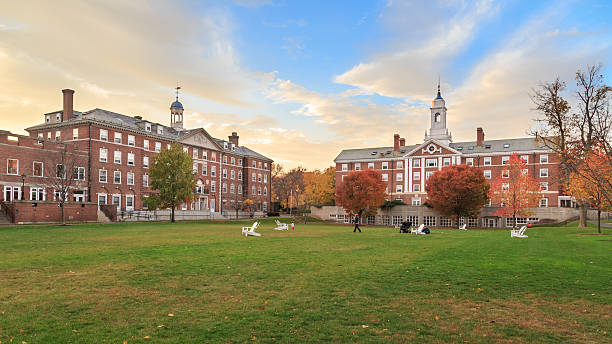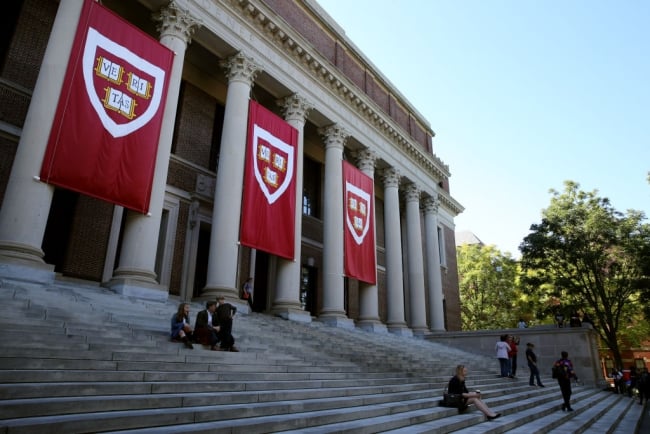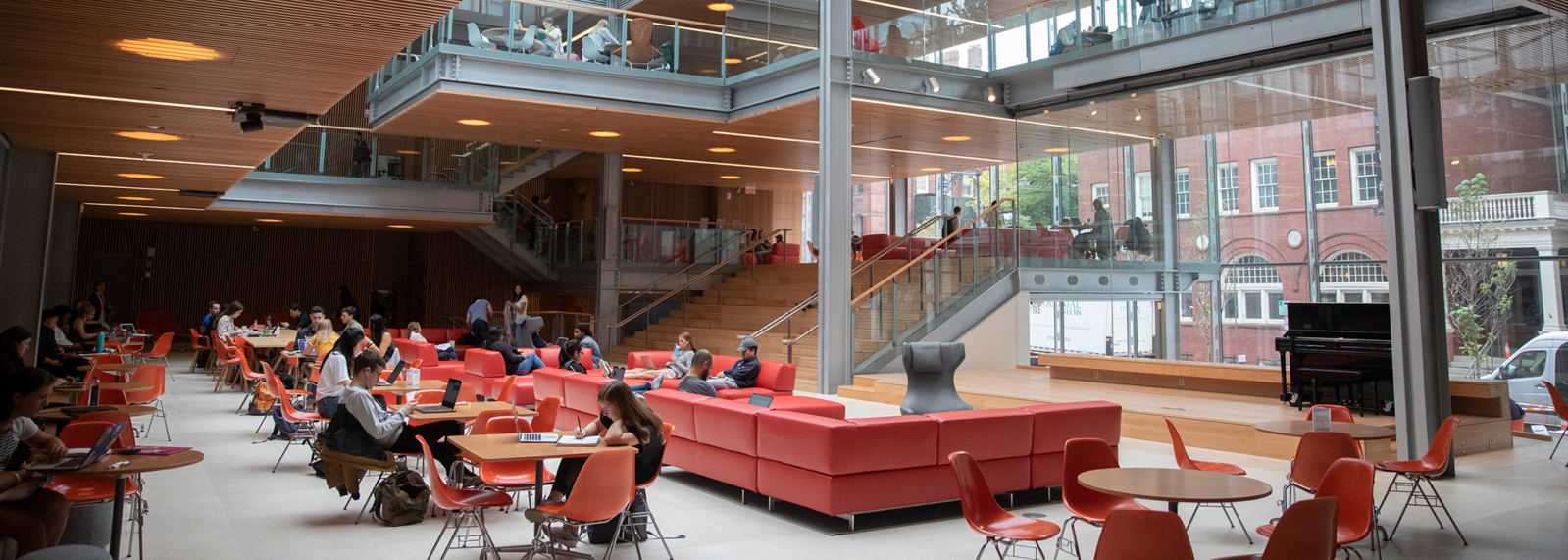Harvard Careers – why work at Harvard
Harvard University offers a diverse range of job and work opportunities across various categories, reflecting its status as a leading academic and research institution. These opportunities cater to different skill sets, academic backgrounds, and career stages.
Harvard University Academic Positions - click here.
Harvard University Staff Jobs - click here.
The main types of jobs and work opportunities at Harvard:
1. Faculty and Academic Positions
- Tenure-Track Faculty: These roles include assistant, associate, and full professors across Harvard’s schools (e.g., Faculty of Arts and Sciences, Harvard Medical School, Harvard Business School). Faculty engage in teaching, research, and service. Qualifications typically include a Ph.D. or equivalent terminal degree, a strong research portfolio, and teaching experience. Openings vary by department and school, with competitive hiring processes.
- Non-Tenure-Track Faculty: Includes lecturers, preceptors, and visiting professors. These roles focus primarily on teaching or short-term research projects and may require a Ph.D. or significant expertise in the field.
- Research Appointments: Postdoctoral fellowships, research associates, and scientists work on cutting-edge research in fields like medicine, engineering, humanities, and social sciences. These positions often require advanced degrees and are funded through grants or specific research programs.
2. Administrative and Professional Staff
- Administrative Roles: These include positions in academic administration (e.g., deans’ offices, registrar, admissions), student services, and program management. Examples include academic program coordinators, admissions officers, and financial aid advisors. These roles often require a bachelor’s or master’s degree and relevant experience.
- Professional Staff: Harvard employs professionals in areas like human resources, finance, communications, development (fundraising), and alumni relations. Examples include HR specialists, financial analysts, and marketing managers. These positions typically require specialized skills or certifications.
- Executive and Leadership Roles: Senior positions like directors, department heads, or executive administrators oversee operations in specific units or schools. These roles demand extensive experience and leadership skills.
3. Research and Laboratory Staff
- Research Support Staff: Includes lab managers, research technicians, and data analysts who support faculty and postdoctoral researchers in labs across disciplines like biology, chemistry, physics, and medicine. These roles often require technical skills, such as proficiency in lab equipment or data analysis software.
- Clinical Research Roles: At Harvard Medical School and affiliated hospitals, clinical research coordinators and specialists support medical and health-related studies. These positions may require certifications like Good Clinical Practice (GCP) training.
4. Technical and IT Staff
- Information Technology: Harvard employs IT professionals for roles like systems administrators, software developers, cybersecurity analysts, and data scientists to support its technological infrastructure. These positions require expertise in areas like cloud computing, AI, or network management.
- Library and Information Services: Harvard’s extensive library system hires librarians, archivists, and digital resource specialists. These roles often require a master’s degree in library science or related fields.
5. Support and Operations Staff
- Facilities and Operations: Includes roles in maintenance, custodial services, groundskeeping, and security. These positions ensure the smooth operation of Harvard’s campus and may not require advanced degrees but often need specific training or certifications.
- Dining and Hospitality: Harvard’s dining services employ chefs, food service workers, and catering staff to support campus dining halls and events.
- Administrative Support: Roles like executive assistants, office managers, and receptionists provide critical support to departments and faculty.
6. Student and Temporary Opportunities
- Student Employment: Harvard offers on-campus jobs for students, including work-study positions in libraries, dining halls, labs, and administrative offices. These roles are typically part-time and designed to accommodate academic schedules.
- Temporary and Seasonal Work: Temporary roles, such as event staff or short-term project assistants, are available for non-students as well. These are often listed through Harvard’s temporary staffing services.
7. Medical and Healthcare Roles
- Clinical and Healthcare Staff: Through Harvard Medical School and affiliated hospitals (e.g., Massachusetts General Hospital, Brigham and Women’s Hospital), opportunities exist for physicians, nurses, medical technicians, and other healthcare professionals. These roles require medical licenses or certifications.
- Public Health Professionals: The Harvard T.H. Chan School of Public Health employs researchers, policy analysts, and program managers focused on global health initiatives.
8. Creative and Media Roles
- Arts and Culture: Harvard’s museums (e.g., Harvard Art Museums) and cultural institutions hire curators, educators, and exhibition staff. The American Repertory Theater employs artists, stage managers, and production staff.
- Communications and Media: Roles in writing, graphic design, social media, and public relations support Harvard’s outreach and branding efforts.
Key Characteristics of Harvard Jobs
- Diversity of Roles: Harvard’s workforce spans academic, administrative, technical, and operational functions, with opportunities for both entry-level and highly specialized professionals.
- Competitive Benefits: Harvard offers comprehensive benefits, including health insurance, retirement plans, tuition assistance, and professional development. Faculty and staff also gain access to Harvard’s libraries, museums, and cultural events.
- Global Impact: Many roles, especially in research and public health, contribute to global advancements in knowledge and policy.
- Location: Most positions are based in Cambridge or Boston, Massachusetts, with some remote or hybrid options, particularly for administrative and IT roles.
How to Find Opportunities
- Harvard Careers Portal: The primary resource for job listings is Harvard’s Human Resources website (hr.harvard.edu/jobs), which lists openings for faculty, staff, and temporary roles.
- School-Specific Listings: Each Harvard school (e.g., Harvard College, Harvard Law School) may post specialized positions on their websites.
- Networking and Referrals: Many academic and research roles are filled through professional networks or direct outreach to departments.
- X Platform: Searching for “Harvard University jobs” on X can reveal real-time discussions, job postings, or employee experiences, though these should be verified through official channels.
Additional Notes
- Qualifications: Requirements vary widely. Faculty roles typically need advanced degrees, while support roles may prioritize experience or specific skills.
- Work Environment: Harvard emphasizes diversity, inclusion, and collaboration, with opportunities for professional growth and community engagement.
- Application Process: Most positions require an online application through Harvard’s careers portal, including a resume, cover letter, and sometimes additional materials like teaching statements or research portfolios.
Harvard University, founded in 1636, is a global leader in higher education, research, and innovation. Comprising 11 degree-awarding schools and renowned institutions like the Harvard Radcliffe Institute, Harvard is dedicated to advancing knowledge, fostering leadership, and making a positive global impact. Its faculty, students, and staff collaborate across disciplines to produce groundbreaking research, from medical breakthroughs at the Wyss Institute to cutting-edge online education through HarvardX.

Harvard’s vibrant academic community thrives on its commitment to innovation and inclusivity. The university houses the world’s largest academic library, supports interdisciplinary ventures like the Harvard Innovation Lab (i-lab), and champions initiatives like the Personal Genome Project and the Laboratory for Innovation Science. Faculty and students benefit from unparalleled resources, opportunities, and a culture of excellence that drives transformative discoveries and solutions to global challenges.
At Harvard, creativity and collaboration are integral to the workplace. The university's mission to educate leaders and advance societal progress is supported by initiatives like the Talent Acquisition and Outreach team, which emphasizes diversity, inclusive hiring practices, and strategic recruitment. Harvard provides an inspiring and forward-thinking environment, making it a cornerstone of innovation in higher education.

About the Harvard workplace and culture
Harvard University offers a dynamic and supportive working environment across its three main campuses in the greater Boston area, each with its own unique character and purpose. The Cambridge campus blends historic charm with a vibrant urban atmosphere, featuring iconic architecture, lush green spaces, and Harvard Square’s bustling cultural scene. This campus houses the majority of Harvard’s schools and administrative units, making it a hub of academic and professional activity.
The Allston campus, located just across the Charles River, is a rapidly growing innovation hub. It is home to the Harvard Business School, the state-of-the-art Science and Engineering Complex, and the Harvard Innovation Labs, providing staff with a front-row seat to cutting-edge developments in research, entrepreneurship, and education.
The Longwood campus, situated in Boston, serves as an international center for medical and public health education. With institutions like Harvard Medical School, the Harvard T.H. Chan School of Public Health, and the Harvard School of Dental Medicine, this campus fosters a collaborative and impactful environment for professionals dedicated to improving health and well-being.

Harvard’s culture is rooted in its mission to advance knowledge and promote excellence. The university emphasizes creativity, collaboration, and intellectual growth, creating a workplace where results matter and ideas thrive. Whether working in Cambridge, Allston, or Longwood, staff are supported by a close-knit community and have access to world-class resources, a vibrant intellectual atmosphere, and a commitment to making a global impact.
Harvard Employee Benefits Beyond Salary
Harvard University provides an exceptional range of benefits that go beyond salary, ensuring employees are supported in their professional and personal lives. Health and wellness are a priority, with comprehensive medical and dental plans, flexible spending accounts, and wellness services such as mindfulness programs and massage therapies. Employees also have access to low-cost fitness facilities and the Center for Wellness to maintain a healthy lifestyle.
Harvard’s generous paid time off policies, including vacation, holidays, and personal leave, ensure employees can balance work with personal needs. Professional growth is actively encouraged through the Tuition Assistance Program, which supports employees in pursuing further education or certifications, and resources at the Center for Workforce Development.
Employees benefit from financial security through University-funded retirement plans, optional savings accounts, and life and disability insurance. Commuting is made easier with a 50% subsidy on MBTA and Commuter Rail passes, bike benefits, and carpooling discounts. Housing resources and credit union mortgage support are also available to help employees settle into the community.

Harvard also offers unique perks, such as discounted tickets to cultural and recreational events, access to museums and libraries, and opportunities to experience top-tier Boston sports and performances. These benefits reflect Harvard’s dedication to its employees’ success, well-being, and quality of life, making it a truly enriching place to work.
How to apply for job opportunities at Harvard
To explore career opportunities at Harvard University, visit the Harvard Careers portal. The platform allows you to:
- View all job opportunities across the University.
- Search for positions using specific criteria.
- Set up job alerts for roles matching your interests.
- Track the status of your applications in real time.
For External Candidates:
Visit the External Candidate Talent Gateway to browse administrative and staff job listings.
For Internal Candidates:
Current Harvard employees can access the Internal Candidate Talent Gateway via their HarvardKey to view all job opportunities, including exclusive postings with a 10-business day priority window for internal candidates.
For Faculty and Academic Positions:
Faculty, post-doctoral, and academic job openings are managed by individual schools and departments. These positions are posted on ARIeS.
If you have questions about the application process or need assistance, visit the Frequently Asked Questions page.
For specific inquiries, contact the Talent Acquisition and Outreach team at employment@harvard.edu.
Join Harvard University and contribute to a vibrant community dedicated to excellence in research, teaching, and innovation.





